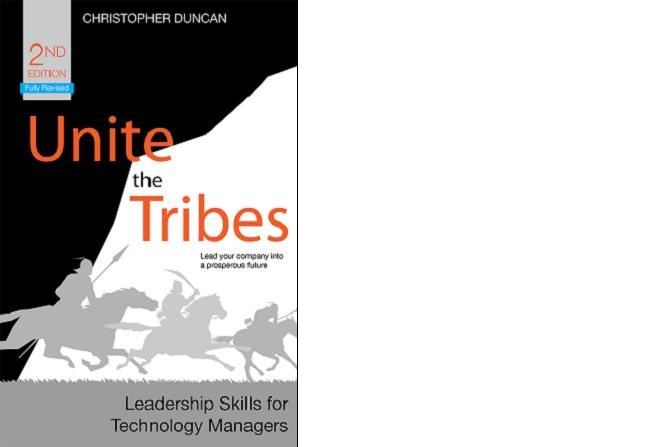Unite the Tribes Excerpts
Leadership skills for technology managers
Focus On A Common Enemy
In America, it's become politically correct to refer to the tribal people who were here before the European invasion as Native Americans, a term I find inaccurate and misleading. In the modern world, American is shorthand for United-States-of-American. Everyone knows this. Consequently, Native American implies someone who was native to the nation.
This couldn't be further from the truth. The Apache, Comanche and countless other nations wanted absolutely nothing to do with this new country in the making, let alone being native to it. What they really wanted was for all those pesky Europeans to just go home and leave them the heck alone.
Neither were they members of one united group, as the umbrella term of Native American implies. They were at constant war with one another in ways large and small, and in the end that cost them dearly. Instead of banding together to attack the invaders as a unified and powerful force, they fought individually and were conquered one by one. It's a cautionary tale.
Throughout the corporate world, companies make this same mistake every day, with individuals and tribes constantly bickering while competitors in the marketplace work to put them out of business. If you don't want to become yet another cautionary tale, you need to bring your people together. Nothing does this like a common enemy.
To harness this power, you simply need to show your people what happens if your competitors have their way. Your enemies in the marketplace will gleefully put you out of business, and if your company dies, it's going to take your paycheck with it. That makes it personal. This is why it's important to fight the common enemy, putting them out of business before they do the same to you. Because it goes right to the heart of self interest, it's a cause your people can believe in.
